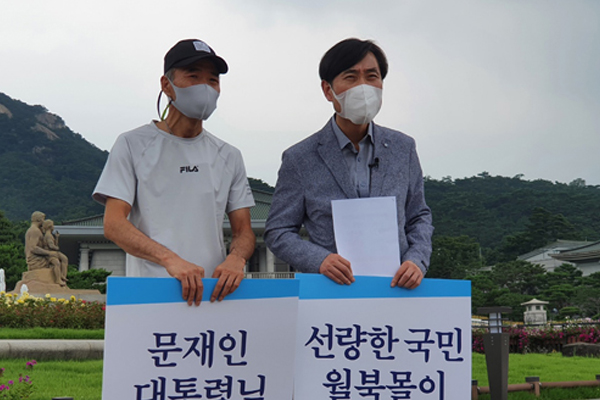The government-run National Human Rights Commission of Korea ruled that the Korea Coast Guard (KCG) violated the human rights of the family members of a victim of North Korean violence.
The KCG announced its interim investigation results on the case of a South Korean civil servant who went missing on the west coast of the peninsula near the border and was killed by troops in North Korea. North Korean soldiers set his body on fire for fear that he might be carrying the coronavirus. This happened on September 22, 2020 and was the first time that North Korea has killed a South Korean citizen in its territory since 2008.
On October 22, the KCG announced the results of its interim investigation. It said the 47-year-old official working for the Ministry of Oceans and Fisheries was in his patrol boat about 6 miles from the border with the North when he disappeared. At the time, the KCG released his financial records, including debt, and his possible gambling issues. It also said he had some mental health issues. They said there was a high chance he tried to defect to North Korea when considering these facts. At that time, some citizens were angry at the fact that the government is trying to blame a South Korean citizen for the incident, instead of North Korea.
The commission said on July 7 that “KCG described the man as having ‘mental issues’ without providing objective reasons to believe so and released his financial records, such as a number of transactions related to gambling and the amount, to say they are evidence of his defection to North Korea.” It added that “By releasing such information to the media, the KCG gravely violated human rights, secrecy, and privacy of his family members.”
The family members filed a petition with the commission and said the “KCG committed an honor killing by releasing sensitive private information to the public.” They said the man’s innocent children now have to live with the scarlet letter that their father was mentally unstable and addicted to gambling.
According to the human rights commission, the KCG asked three experts to analyze the man’s mental status. Two of them said it is difficult to determine that he had gambling issues based on such limited information and one said he is a severe gambling addict. Even though two out of three said it is difficult to say he had gambling issues, the KCG announced it in such a way. “There were comments that he had mental issues, but they are the views of partial experts, and it is unfair to announce it as they did,” the human rights commission said. The commission also found that the amount of debt that the KCG announced was different from the actual amount. The NHRC asked the KCG chief to issue a warning to two officials who were involved in the investigation process at that time.
The victim’s family members have accused the Moon Jae-in administration of hiding facts about the incident and not conducting a thorough investigation. In October, President Moon Jae-in wrote a letter to the victim’s son in high school that said, “I promise that I will personally take care of this to conduct every process transparently and find the truth.”
However, there was another allegation by the older brother of the victim, Lee Rae-jin, last month that the presidential Blue House is ignoring his requests for a meeting with the president. Lee released a screen-captured image of the message he sent to Park Kyung-mi, spokesperson for the Blue House. In the message, Lee introduced himself and said “I officially request a meeting with VIP, and I would like you to give me a call when you are available.”
The application he used has a function where users can see whether the receiver read the message or not. The image showed that Park read it and gave no answer.
“I have a suspicion that the Blue House is intentionally avoiding the victim’s family members,” he told the media. “It has already been around a year, but no decision has been made on anything including whether to designate him as an official who died on duty. I was suffocating, and contacted spokesperson Park Kyung-mi multiple times. President Moon Jae-in said he will take care of this issue himself. Can they treat the victim’s family members this poorly?”
Lee added that he met with Lee In-young, Minister of Unification, in February and gave him a document with a series of questions. He said that he recently received a reply that said “it is difficult to provide answers.”
North Korea’s dictator Kim Jong-un issued a rare personal apology for the killing of the South Korean official just three days after the incident. According to the Blue House, Kim called it a “disgraceful affair” and said that he felt “very sorry” for “disappointing” President Moon and the South Korean people. At that time, Unification Minister Lee In-young said, “it is very rare for them to use the term ‘sorry,’ and it is the first time that they expressed apology twice in the same letter.” Some liberal commentators and politicians praised Kim for this apology, and argued that it is another sign that the two countries are ready to get back to the negotiation table.
However, North Korea changed its stance completely on October 30, which is a move that is typical of Pyongyang. Its state-run KCNA news agency blamed South Korea for “improper control of its citizen” and said it was a self-defensive measure amid concerns over the spread of Covid-19.
The incident was “the result of improper control of the citizen by the south side in the sensitive hotspot at a time when there are tension and danger due to the vicious virus sweeping the whole of South Korea,” it added. “Therefore, the blame for the incident first rests with the south side.”


